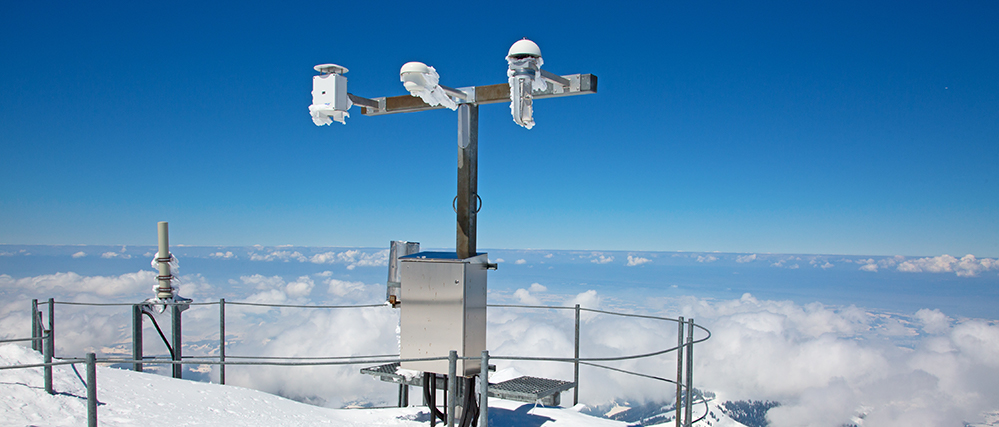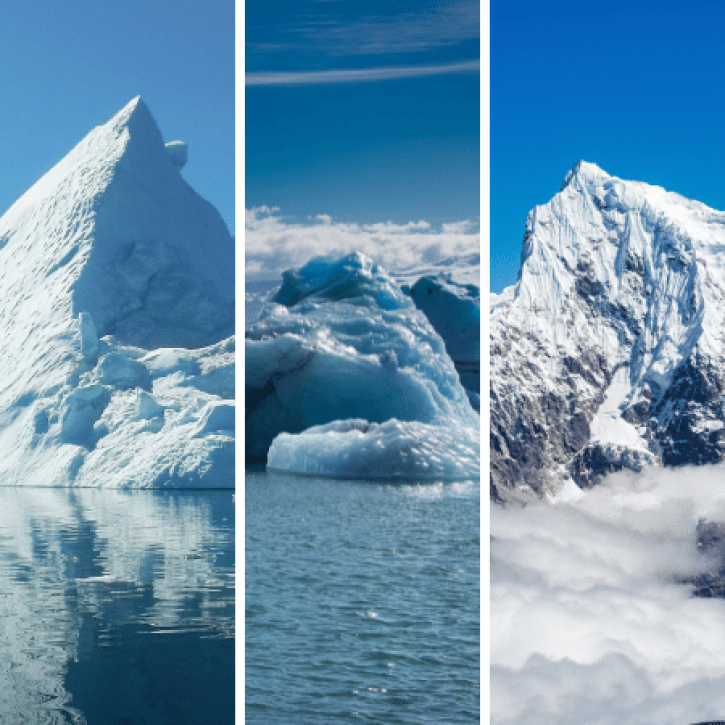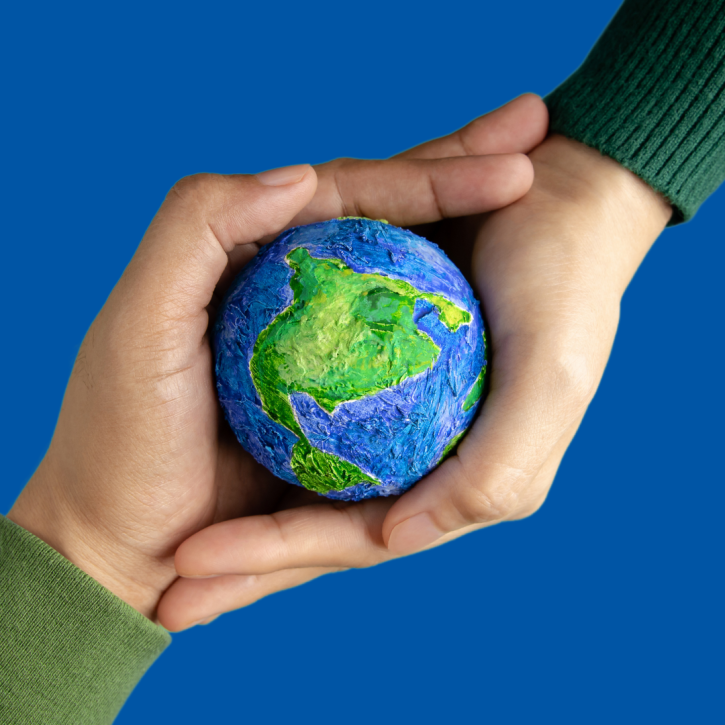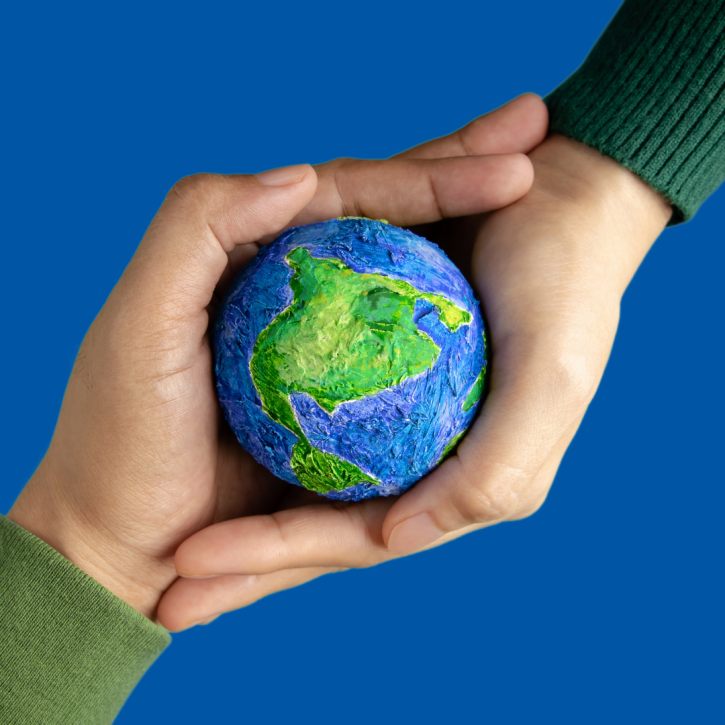

Making Weather and Climate Measurements in Difficult Places
LOCATION
Lensfield Road
Cambridge
CB2 1ER
Weather and climate observations in remote or inaccessible locations are repeatedly fraught with difficulties, whether on our home planet or other planets in our Solar System. Achieving reliable measurements in such difficult locations often stretch existing measurement methods and technologies well beyond normal operating limits. This meeting examined how such measurements are made, considering five particularly difficult and forbidding environments in turn.
This meeting was rescheduled from its original date in October 2022 owing to industrial action on the train network. If you had registered for the original meeting, your registration will have been automatically moved to this date.
Meeting Chair – Dr Stephen Burt, University of Reading
Agenda
14th Mar 2023 13:00 - 18:00
Session Chair: Stephen Burt
Session schedule
Hide| Time | Title | Speaker |
|---|---|---|
| 13:00 | Welcome and Introduction: Making Weather and Climate Measurements in Difficult Places | - - - |
| 13:10 | Atmospheric Measurements over Arctic Sea Ice | Prof I Brooks |
| 13:45 | The UK’s Changing Mountain Climate as Observed by Met Office High-Level Weather Stations | Mr M Kendon |
| 14:20 | The Challenges of Collecting Meteorological Data in Antarctica | Mr S Colwell FRMetS |
| 14:45 | Refreshment Break | - - - |
| 15:15 | Instrumentation Challenges at High Altitudes: Observations from The Himalayas | Mr R McKay |
| 15:50 | Too Cold, Too Hot or Just Right? Meteorological Measurements on Mars and Venus | Dr C Wilson |
| 16:30 | Closing Remarks | - - - |
| 16:40 | Meeting Close | - - - |
| 18:00 | The Scott Polar Research Institute will remain open until 1800 for attendees who wish to visit the exhibition. | - - - |
Event Information
This ‘face-to-face’ meeting will be held at the Scott Polar Research Institute, Cambridge (please note it will not be streamed online). The Institute, which was established in 1920 as part of the University of Cambridge, is a centre of excellence in the study of the Arctic and Antarctic. and houses the world’s premier Polar Library, extensive archival, photographic and object collections of international importance on the history of polar exploration, and a Polar Museum with displays of both the history and contemporary significance of the Arctic and Antarctic and their surrounding seas. A location map and details on how to reach the Institute by public transport or by car can be found at www.spri.cam.ac.uk/contacts/directions. Cambridge is easily accessible by road, and is only 45 minutes by train from London (SPRI is 10 minutes’ walk from Cambridge station). There is no car parking at the Museum; visitors are encouraged to make use of the Cambridge Park and Ride facilities as parking within Cambridge is limited and can be expensive. There is no charge for attending, or for entrance to the exhibition.
The Scott Polar Research Institute will remain open until 1800 for attendees to visit the exhibition.
Registration
REGISTRATION IS NOW CLOSED.
Registration for this event is available in person.
Please note that our registration process has recently changed:
Members
If you are a member of the Society and have an account already, please log in to your account before your register. If you are a member and don’t have an account set up already, you will need to create an account. Your username is the email address that is linked to your membership.
Non-Members
If you are not a member of the Society you will need to create an account in order to register for events.
Once you have created an account, you will be required to log in each time you would like to register for an event. You will also have access to a Dashboard area that will show which events you have registered for and past events you have attended.
Any information you provide to us will only be used by The Royal Meteorological Society and appointed representatives.
This meeting is part of the Royal Meteorological Society Meetings programme, open to all, from expert to enthusiast, for topical discussions on the latest advances in weather and climate. Free to attend. Non-members are welcome.
A copy of our terms and conditions can be found here
If you have any queries with regards to this event or require any further information please contact us at meetings@rmets.org
Session Abstracts
Atmospheric measurements over Arctic sea ice
Professor Ian M. Brooks Institute for Climate & Atmospheric Science, School of Earth & Environment, University of Leeds
The climate of the Arctic is changing rapidly, warming up to four times faster than the rest of the world. While models broadly represent the enhanced warming, they fail to accurately reproduce all the observed features, and show greater variability between models than at lower latitudes. This suggests a failure to properly represent physical processes, and maybe missing processes, within the models. Known problems are the representation of clouds, and turbulent surface fluxes over sea ice. Addressing these model failing requires detailed in situ process measurements in a remote and very harsh environment. This talk will look at some of the measurements made in recent field campaigns - notably the year-long MOSAiC project - and the challenges faced in undertaking them.
The UK’s changing mountain climate as observed by Met Office high-level weather stations
Mike Kendon Met Office NCIC, Exeter
The Met Office National Climate Information Centre (NCIC) are responsible for monitoring the UK’s climate, including its mountains. A small network of high-level stations provide observations representative of mountain conditions which could not be provided by nearby low-level stations. These stations use special non-standard equipment, since the instruments normally present at a standard Met Office low-level weather station would quickly fail in the hostile upland environment. In this talk I will provide a brief overview of the equipment used at these stations, discuss their importance for climate monitoring and show a few example observations from these stations – some of which may be surprising. Finally, I will discuss what these observations tell us about the changing nature of the UK’s mountain climate. Some photographs of mountains are guaranteed.
The challenges of collecting meteorological data in Antarctica
Steve Colwell British Antarctic Survey, Cambridge
Antarctica is the coldest, driest, windiest and highest continent on Earth. It is about fifty times the size of the UK and is almost completely covered in ice. In places the ice sheet is over 4 km thick, and the lowest temperature ever recorded at the surface was -89.2 °C at Vostok station. The highest gust ever recorded in Antarctica was 173 knots (89 m/s) at Dumont d’Urville station. This presentation will look at the technical, logistical and physical challenges faced when installing and maintaining meteorological equipment on this beautiful but hostile continent.
Instrumentation challenges at high altitudes: Observations from The Himalayas
Richard McKay Senior Product Manager, Campbell Scientific Ltd
In 2019, five automatic weather stations were installed on the slopes of the highest Himalayan peaks. This presentation will discuss some of the specific challenges the team faced in choosing suitable equipment along with the unique issues involved in reaching, installing and communicating with automated sensor packages at extreme altitudes.
Too cold, too hot or just right? Meteorological measurements on Mars and Venus
Colin F Wilson European Space Agency / Oxford University
Meteorological measurements have been taken both at Mars and at Venus. Mars meteorological stations face low temperatures (down to -100 °C) and pressures (5-8 mbar) and windblown dust and sand; the longest of these records now approaches 10 Earth years in duration. Venus landers face high temperatures (475 °C) and pressures (90 atm), and a challenging chemical environment; none have lasted more than two hours. Balloons in the clouds of Venus can enjoy more benign environmental conditions with temperatures and pressures in the 0–60 °C and 0.3 – 0.7 bar ranges respectively – but have to contend with sulphuric acid cloud droplets and limited balloon lifetimes. This presentation will review past and present Mars and Venus meteorological instrumentation and prospects for the future.
Resources
Weather and climate observations in remote or inaccessible locations are repeatedly fraught with difficulties, whether on our home planet or other planets in our Solar System. Achieving reliable measurements in such difficult locations often stretch existing measurement methods and technologies well beyond normal operating limits. This meeting examined how such measurements are made, considering five particularly difficult and forbidding environments in turn.
This meeting was rescheduled from its original date in October 2022 owing to industrial action on the train network. If you had registered for the original meeting, your registration will have been automatically moved to this date.
Meeting Chair – Dr Stephen Burt, University of Reading
Agenda
14th Mar 2023 13:00 - 18:00
Session Chair: Stephen Burt
Session schedule
Hide| Time | Title | Speaker |
|---|---|---|
| 13:00 | Welcome and Introduction: Making Weather and Climate Measurements in Difficult Places | - - - |
| 13:10 | Atmospheric Measurements over Arctic Sea Ice | Prof I Brooks |
| 13:45 | The UK’s Changing Mountain Climate as Observed by Met Office High-Level Weather Stations | Mr M Kendon |
| 14:20 | The Challenges of Collecting Meteorological Data in Antarctica | Mr S Colwell FRMetS |
| 14:45 | Refreshment Break | - - - |
| 15:15 | Instrumentation Challenges at High Altitudes: Observations from The Himalayas | Mr R McKay |
| 15:50 | Too Cold, Too Hot or Just Right? Meteorological Measurements on Mars and Venus | Dr C Wilson |
| 16:30 | Closing Remarks | - - - |
| 16:40 | Meeting Close | - - - |
| 18:00 | The Scott Polar Research Institute will remain open until 1800 for attendees who wish to visit the exhibition. | - - - |
Event Information
This ‘face-to-face’ meeting will be held at the Scott Polar Research Institute, Cambridge (please note it will not be streamed online). The Institute, which was established in 1920 as part of the University of Cambridge, is a centre of excellence in the study of the Arctic and Antarctic. and houses the world’s premier Polar Library, extensive archival, photographic and object collections of international importance on the history of polar exploration, and a Polar Museum with displays of both the history and contemporary significance of the Arctic and Antarctic and their surrounding seas. A location map and details on how to reach the Institute by public transport or by car can be found at www.spri.cam.ac.uk/contacts/directions. Cambridge is easily accessible by road, and is only 45 minutes by train from London (SPRI is 10 minutes’ walk from Cambridge station). There is no car parking at the Museum; visitors are encouraged to make use of the Cambridge Park and Ride facilities as parking within Cambridge is limited and can be expensive. There is no charge for attending, or for entrance to the exhibition.
The Scott Polar Research Institute will remain open until 1800 for attendees to visit the exhibition.
Registration
REGISTRATION IS NOW CLOSED.
Registration for this event is available in person.
Please note that our registration process has recently changed:
Members
If you are a member of the Society and have an account already, please log in to your account before your register. If you are a member and don’t have an account set up already, you will need to create an account. Your username is the email address that is linked to your membership.
Non-Members
If you are not a member of the Society you will need to create an account in order to register for events.
Once you have created an account, you will be required to log in each time you would like to register for an event. You will also have access to a Dashboard area that will show which events you have registered for and past events you have attended.
Any information you provide to us will only be used by The Royal Meteorological Society and appointed representatives.
This meeting is part of the Royal Meteorological Society Meetings programme, open to all, from expert to enthusiast, for topical discussions on the latest advances in weather and climate. Free to attend. Non-members are welcome.
A copy of our terms and conditions can be found here
If you have any queries with regards to this event or require any further information please contact us at meetings@rmets.org
Session Abstracts
Atmospheric measurements over Arctic sea ice
Professor Ian M. Brooks Institute for Climate & Atmospheric Science, School of Earth & Environment, University of Leeds
The climate of the Arctic is changing rapidly, warming up to four times faster than the rest of the world. While models broadly represent the enhanced warming, they fail to accurately reproduce all the observed features, and show greater variability between models than at lower latitudes. This suggests a failure to properly represent physical processes, and maybe missing processes, within the models. Known problems are the representation of clouds, and turbulent surface fluxes over sea ice. Addressing these model failing requires detailed in situ process measurements in a remote and very harsh environment. This talk will look at some of the measurements made in recent field campaigns - notably the year-long MOSAiC project - and the challenges faced in undertaking them.
The UK’s changing mountain climate as observed by Met Office high-level weather stations
Mike Kendon Met Office NCIC, Exeter
The Met Office National Climate Information Centre (NCIC) are responsible for monitoring the UK’s climate, including its mountains. A small network of high-level stations provide observations representative of mountain conditions which could not be provided by nearby low-level stations. These stations use special non-standard equipment, since the instruments normally present at a standard Met Office low-level weather station would quickly fail in the hostile upland environment. In this talk I will provide a brief overview of the equipment used at these stations, discuss their importance for climate monitoring and show a few example observations from these stations – some of which may be surprising. Finally, I will discuss what these observations tell us about the changing nature of the UK’s mountain climate. Some photographs of mountains are guaranteed.
The challenges of collecting meteorological data in Antarctica
Steve Colwell British Antarctic Survey, Cambridge
Antarctica is the coldest, driest, windiest and highest continent on Earth. It is about fifty times the size of the UK and is almost completely covered in ice. In places the ice sheet is over 4 km thick, and the lowest temperature ever recorded at the surface was -89.2 °C at Vostok station. The highest gust ever recorded in Antarctica was 173 knots (89 m/s) at Dumont d’Urville station. This presentation will look at the technical, logistical and physical challenges faced when installing and maintaining meteorological equipment on this beautiful but hostile continent.
Instrumentation challenges at high altitudes: Observations from The Himalayas
Richard McKay Senior Product Manager, Campbell Scientific Ltd
In 2019, five automatic weather stations were installed on the slopes of the highest Himalayan peaks. This presentation will discuss some of the specific challenges the team faced in choosing suitable equipment along with the unique issues involved in reaching, installing and communicating with automated sensor packages at extreme altitudes.
Too cold, too hot or just right? Meteorological measurements on Mars and Venus
Colin F Wilson European Space Agency / Oxford University
Meteorological measurements have been taken both at Mars and at Venus. Mars meteorological stations face low temperatures (down to -100 °C) and pressures (5-8 mbar) and windblown dust and sand; the longest of these records now approaches 10 Earth years in duration. Venus landers face high temperatures (475 °C) and pressures (90 atm), and a challenging chemical environment; none have lasted more than two hours. Balloons in the clouds of Venus can enjoy more benign environmental conditions with temperatures and pressures in the 0–60 °C and 0.3 – 0.7 bar ranges respectively – but have to contend with sulphuric acid cloud droplets and limited balloon lifetimes. This presentation will review past and present Mars and Venus meteorological instrumentation and prospects for the future.





